Medical Device Coatings
Key Benefits to Armoloy Medical Coatings
Armoloy TDC® is a precise, biocompatible, pure, metallic chromium coating for medical, surgical, laboratory and clean room environments. Highly trained coating professionals and strict process controls allow for a uniform coating that is unparalleled in performance. The coatings are completely inert, non-magnetic , USP 10993-10, 10993-6, 10993-11 tested. The coating improves the physical appearance of medical instruments and, more importantly, provides functional enhancements to their performance in the following ways:
- Biocompatible Tested 10993-10 / 10993-6 / 10993-11
- Arrests corrosion from sterilization and laser marking while maintaining new appearance
- Increases wear resistance
- Maintains cutting edges
- Provides a hard, scratch resistant, nonstick, easy clean surface
- Increases surface hardness
- Eliminates galling, fretting, spalling
- Ability to easily remove and reapply
- Arrests metallic debris and particulate matter
- Provides smooth sliding surfaces
- Reduces high intensity light reflection/refraction and glare
- Provides long lasting, clean, pristine new appearance
- Chemical and detergent resistant
- Hydrophobic
Industry Certifications:
- Hydrogen Embrittlement Tested per ASTM F519
- Salt Spray Tested (50 hour) per ASTM B117
- Adhesion Tested per ASTM B571 and BAC5709
- Hardness Tested per ASTM E384-17 and BAC5709
- Porosity Tested per AMS 2460
- Custom Testing per Customer Specifications
- NAMSA Tested USP 10993-10, 10993-6, 10993,11
NAMSA Test Results:
United States Pharmacopeia; ISO 10993-10
USP Intracutaneous Study
TU013-800
No Localized Tissue Reaction
Irritation tests are utilized to assess the irritation potential of medical devices, bio-materials, or their extracts exposed to eye, skin, or mucous membranes. The test(s) are performed using a model appropriate for the route (skin, eye, mucosa) and duration of exposure or contact.
United States Pharmacopeia; ISO 10993-6
USP Muscle Implantation Study 7 Day
TU014-807
Non Irritating to Muscle Tissue
Implantation tests are performed to evaluate the local d pathological effects on living tissue, at both the gross level and microscopic level, after implantation of samples of medical Implantation tests are performed to evaluate the local pathological effects on living tissue, at both the gross level and microscopic level, after implantation of samples of medical devices or bio-materials. The implant location is based on the clinical site of use. Implant duration’s are based on the need to evaluate the tissue response over multiple intervals and along with the sample’s inertness and absorptive characteristics.
U.S. Pharmacopeial Convention; ISO 10993-11
Acute Systemic - No Systemic Toxicity
TU012-500
No Systemic Toxicity
Systemic Toxicity tests evaluate the generalized biological effects to organs and tissues following exposure to a medical devices, bio-material, or their extracts. The term systemic implies that the exposure occurs by one route and the toxic substance is carried to distant locations causing an adverse effect. Systemic toxicity is typically evaluated in studies of acute, sub-acute, sub-chronic, and chronic duration based on the device’s intended exposure.
OUR COATINGS
A SOLUTION FOR EVERY APPLICATION
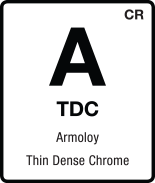
Armoloy TDC is an excellent candidate for application to nearly every industrial steel, from tool steels such as S-7 H-13
Learn More
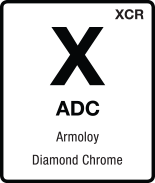
With hardness measurements exceeding 90 Rc, XADC can be applied to nearly every common manufacturing...
Learn More
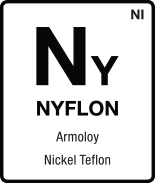
Nyflon is a co-deposit of electroless nickel and PTFE (Teflon©). Unlike competing electroless nickel/ PTFE coatings...
Learn More
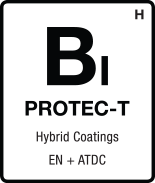
Bi-Protec is a two-step process that combines electroless nickel with an overlay of Armoloy TDC or XADC...
Learn More
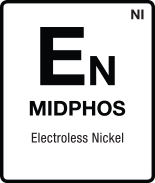
For applications involving moderate to severe corrosion, Armoloy of Illinois’ mid-phosphorus electroless nickel can be applied...
Learn More
